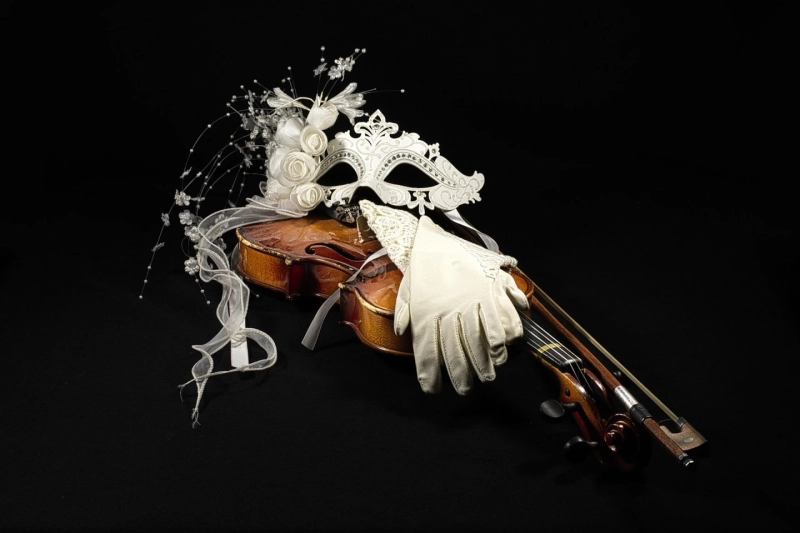Operatic excellence has long captivated audiences around the globe, transcending cultural and linguistic barriers to deliver powerful emotional experiences. The world of opera is rich with history and artistry, and its greatest operas have left an indelible mark on the hearts of music lovers. These masterpieces, with their unforgettable arias, dramatic narratives, and compelling characters, represent the pinnacle of artistic achievement in the performing arts. From the soaring high notes of a soprano to the deep, resonant tones of a bass, the greatest operas offer something for everyone, blending music, theater, and storytelling into a singular, transformative experience.
The Timeless Allure of Opera
Opera\'s timeless appeal lies in its ability to convey profound human emotions and stories through music. Each performance is a unique journey, combining the talents of composers, librettists, directors, and performers to create a spectacle that can stir the soul. The grandeur of the sets, the opulence of the costumes, and the sheer power of the orchestration all contribute to the immersive experience that is opera. From the tragedy of "La Traviata" to the comedic brilliance of "The Marriage of Figaro," each opera offers a different perspective on the human condition, making it a beloved art form for centuries.
Iconic Operas and Their Impact
Certain operas have achieved iconic status, becoming benchmarks against which all others are measured. Giuseppe Verdi\'s "Aida," with its epic scale and memorable music, continues to awe audiences with its depiction of love and duty amidst the backdrop of ancient Egypt. Richard Wagner\'s "Ring Cycle" remains a monumental achievement in the operatic canon, known for its intricate leitmotifs and grandiose storytelling. These operas, among others, have shaped the evolution of the art form, influencing countless composers and performers.
The Role of Opera in Contemporary Culture
Today, opera remains a vibrant and evolving art form. Modern productions often incorporate innovative technologies and contemporary interpretations to make these classic works accessible to new generations. Opera companies around the world are dedicated to preserving the traditional repertoire while also commissioning new works that reflect today\'s diverse society. This commitment to both tradition and innovation ensures that opera will continue to thrive and inspire audiences for years to come.
The Stories Behind the Music
Every opera tells a story, often drawing from myths, legends, historical events, or literary classics. These narratives are brought to life through the powerful combination of music and drama. For example, Puccini\'s "Madama Butterfly" is a heartrending tale of love and betrayal set in Japan, while Bizet\'s "Carmen" presents a passionate and tragic story set in the vibrant backdrop of Spain. The richness of these stories, combined with the emotional power of the music, creates an unforgettable experience for audiences.
The Composers Who Shaped Opera
The history of opera is dotted with the names of great composers whose works have defined the genre. Wolfgang Amadeus Mozart, with his impeccable sense of melody and dramatic timing, created operas like "Don Giovanni" and "The Magic Flute," which remain staples of the operatic repertoire. Giuseppe Verdi, known for his ability to convey deep emotion and complex characters, gave us masterpieces such as "Rigoletto" and "Il Trovatore." Richard Wagner revolutionized opera with his concept of the Gesamtkunstwerk, or "total work of art," in which music, drama, and visual elements are seamlessly integrated. These composers, among others, have left a lasting legacy that continues to influence and inspire.
The Performers Who Bring Operas to Life
An opera is only as good as its performers, and the world has been graced with some truly extraordinary talents. Legendary singers like Maria Callas, Luciano Pavarotti, and Plácido Domingo have captivated audiences with their powerful voices and compelling stage presence. Their interpretations of operatic roles have set the standard for future generations, and their recordings continue to be cherished by opera lovers around the world. The dedication and artistry of these performers are crucial to bringing the stories and music of the greatest operas to life.
The Future of Opera
Looking ahead, the future of opera is bright. While traditional productions remain popular, there is also a growing movement towards innovation and experimentation within the genre. Contemporary composers are creating new works that address modern themes and incorporate diverse musical styles. Opera companies are embracing technology, using digital effects and multimedia to enhance the audience experience. Additionally, efforts to make opera more accessible, such as live broadcasts and outreach programs, are helping to introduce this art form to a broader audience.
Conclusion
In celebrating the world\'s best operas, we acknowledge the enduring legacy of this magnificent art form. The greatest operas continue to captivate and inspire, offering a unique blend of music, drama, and storytelling that resonates deeply with audiences. As we look to the future, we can be confident that opera will continue to evolve and thrive, bringing joy and enlightenment to generations to come. Whether you\'re discovering opera for the first time or revisiting a beloved favorite, the magic of opera is a testament to the extraordinary power of human creativity and expression.



